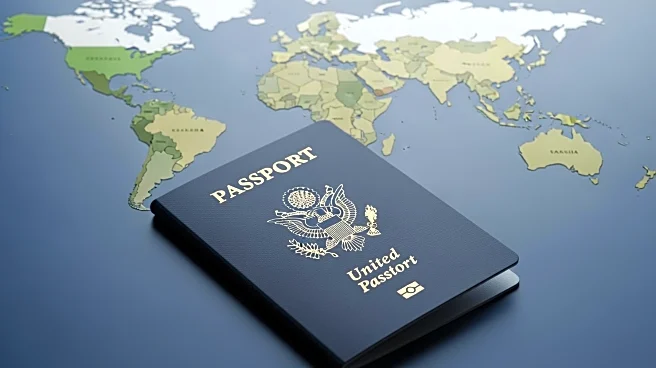What's Happening?
The Henley Passport Index has released its 2025 Global Passport Ranking, revealing that the United States has fallen out of the top ten most powerful passports for the first time in 20 years, now ranking 12th alongside Malaysia. The index evaluates passports based
on visa-free travel rights to 227 destinations worldwide. The U.S. passport currently offers visa-free access to 180 destinations. Meanwhile, Singapore holds the top position with visa-free entry to 193 countries, followed by South Korea and Japan. China has made significant progress, climbing from 94th to 64th place over the past decade.
Why It's Important?
The decline in the U.S. passport's ranking reflects changing global mobility dynamics and may impact American travelers' ease of access to international destinations. This shift could influence travel industry trends and affect U.S. citizens' international business and tourism activities. The rise of Asian countries like Singapore, South Korea, and China in the rankings highlights their growing influence in global travel and economic sectors. The Henley Passport Index serves as a barometer for international relations and visa policies, affecting diplomatic and economic interactions.
What's Next?
The U.S. may need to reassess its visa policies and international agreements to improve its passport ranking and enhance global mobility for its citizens. Countries with rising passport power, such as China, may leverage their improved rankings to strengthen diplomatic ties and economic partnerships. The travel industry may adapt to these changes by offering new services and packages tailored to evolving visa requirements and travel preferences.
Beyond the Headlines
The shifting passport rankings underscore broader geopolitical trends, including the increasing prominence of Asian nations in global affairs. The U.S.'s fall in the rankings may prompt discussions on immigration policies and international cooperation. The Henley Passport Index highlights the interconnectedness of global mobility, economic opportunities, and diplomatic relations.
















